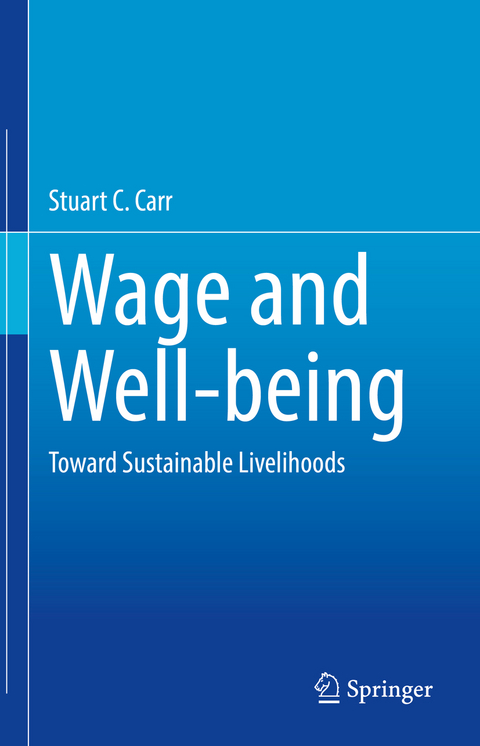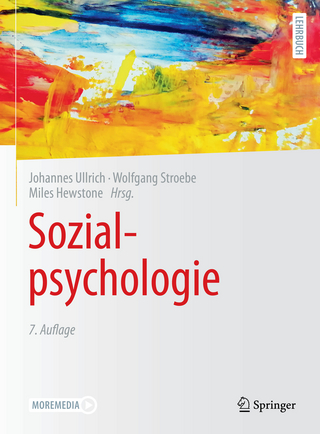
Wage and Well-being
Springer International Publishing (Verlag)
978-3-031-19300-2 (ISBN)
This book examines the links between work wage and wellbeing, drawing on the new specialism of Humanitarian Work Psychology and the United Nations Sustainable Development Goals (SDGs). Humanitarian work psychology foregrounds people before profit, not wages before people. It resonates with the SDGs through the Decent Work Agenda, a policy program that stresses a number of humanitarian concerns: standards and rights at work, employment creation and enterprise development, social protection and social dialogue. These standards and forms of dialogue, from the living wage standard to new diplomacies for inclusive policy dialogue, appear and re-appear throughout the following chapters and sections in the book. The book synthesizes job characteristics models and psychology of working approaches with job evaluation techniques, poverty trap theory, diminishing marginal returns, work justice theory, the social psychology of equality and inequality, and a rangeof literatures on wellbeing that crisscross the social sciences.
Stuart C. Carr is Professor of Psychology, Industrial and Organizational (I/O) Psychology Program, Massey University, New Zealand and holds a UNESCO Chair in Sustainable Livelihoods. Stuart co-facilitates the End Poverty and Inequality Cluster (EPIC), which includes a focus on transitions from precarious labor to decent work and living wages, to Sustainable Livelihoods. Intersecting with EPIC is Project G.L.O.W. (for Global Living Organizational Wage), a multi-country, multi-generational, interdisciplinary study of the links between decent wages (in purchasing power parity), and sustainable livelihoods for the eradication of poverty – the primary UN Sustainable Development Goal (SDG1). Stuart’s professional focus is Humanitarian Work Psychology, which has included a Global Task Force for Humanitarian Work Psychology, promoting Decent Work aligned with local stakeholder needs, in partnership with global development agencies. He was a lead investigator on Project ADDUP, a multi-country DFID/ESRC-funded study of pay and remuneration diversity between national and international labor in developing economies. Stuart is a Fellow of the Royal Society of New Zealand (RSNZ), the Society for Industrial and Organizational Psychology (SIOP), and the New Zealand Psychological Society (NZPS). He is the coordinating Principal Investigator for a RSNZ Marsden Grant awarded to the New Zealand hubs in GLOW (2018). He is a previous Editor of the Journal of Pacific Rim Psychology, and of the Hogrefe journal, International Perspectives in Psychology: Research, Practice, Consultation, which supports the SDGs. He has published a number of books with Springer, on eradicating poverty in all its forms, everywhere (SDG-1).
CONCEPTUAL CORNERSTONES. .- 1. Wage.- 2. Wellbeing.- 3. Sustainable Livelihood .- WAGE-WELLBEING SPECTRUM. .- 4. Slavery wage.- 5. Minimum wage.- 6. Living wage.- 7. Maximum wage.- INTERSECTIONS. .- 8. Sexist wage.- 9. Racist wage.- 10. Policy suite
| Erscheinungsdatum | 03.01.2023 |
|---|---|
| Zusatzinfo | XVIII, 269 p. 22 illus., 15 illus. in color. |
| Verlagsort | Cham |
| Sprache | englisch |
| Maße | 155 x 235 mm |
| Gewicht | 546 g |
| Themenwelt | Geisteswissenschaften ► Psychologie ► Arbeits- und Organisationspsychologie |
| Geisteswissenschaften ► Psychologie ► Psychoanalyse / Tiefenpsychologie | |
| Medizin / Pharmazie ► Medizinische Fachgebiete ► Psychiatrie / Psychotherapie | |
| Schlagworte | Decent Work • Happiness • income inequality • living wage • minimum wage • precarious work • SDGs • Shared Prosperity • Sustainable Livelihood • UBI • Wellbeing • working poverty |
| ISBN-10 | 3-031-19300-8 / 3031193008 |
| ISBN-13 | 978-3-031-19300-2 / 9783031193002 |
| Zustand | Neuware |
| Haben Sie eine Frage zum Produkt? |
aus dem Bereich


